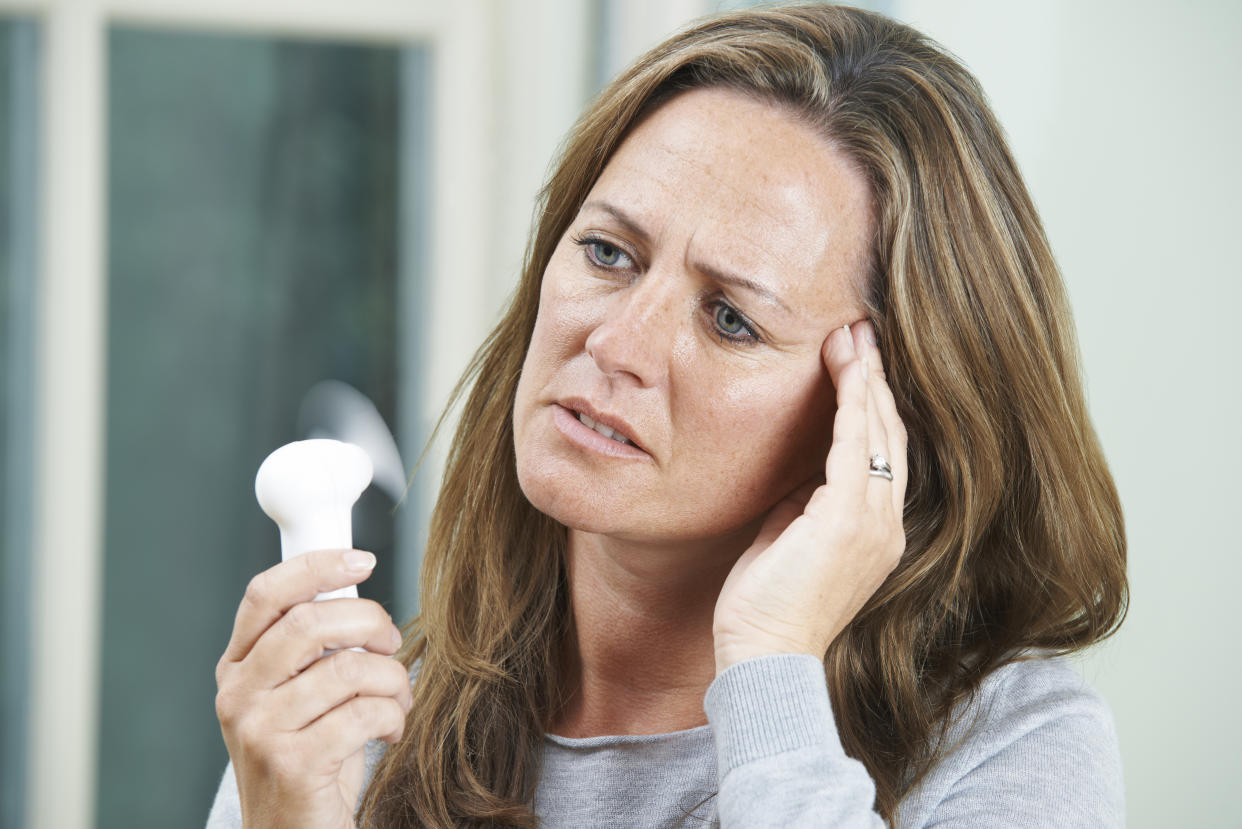Early menopause 'triples a woman's risk of multiple health issues'

Women who go through the menopause early may be three times more likely to suffer multiple health issues in later life, research suggests.
Scientists from The University of Queensland in Brisbane looked at more than 5,000 women aged 40-to-50 over 20 years.
They found the women who went through the menopause before 50 were twice as likely to develop “multimorbidities” by 60 and three times more at risk from 60 onwards.
READ MORE: How to enjoy sex during the menopause
“We found 71% of women with premature menopause developed multimorbidity by the age of 60 compared with 55% of women who experienced menopause at the age of 50-to-51,” study author Dr Xiaolin Xu said.
“In addition, 45% of women with premature menopause developed multimorbidity in their 60s compared with 40% of women who experienced menopause at the age of 50-51.”
The menopause occurs when a woman stops having her periods and can no longer become pregnant naturally.
This a normal part of the ageing process and usually occurs between 45 and 55 years of age, according to the NHS.
In both the UK and US, the average age for a woman to go through “the change” is 51, statistics show.
The NHS defines an early menopause as before 45.
This can occur naturally, or as a result of chemo, radiotherapy or surgery to remove the ovaries.
READ MORE: Erectile dysfunction puts post-menopausal women off sex more than low libido
To uncover the risks of an early menopause, the scientists looked at thousands of middle-aged women who took part in the Australian Longitudinal Study.
The women answered a questionnaire in 1996, followed by additional surveys around every three years.
They noted if they had suffered any of the following: diabetes, high blood pressure, heart disease, stroke, arthritis, osteoporosis, asthma, chronic obstructive pulmonary disease, depression, anxiety or breast cancer.
Multimorbidity was defined as being diagnosed or treated for two or more of the conditions.
Results suggest those who went through an early natural menopause, not treatment induced, were more likely to suffer several health complications years later.
“We also found premature menopause is associated with a higher incidence of individual chronic conditions,” Dr Xu said.
The results remained true after adjusting for other factors that influence health, including BMI, exercise levels and smoking status.
READ MORE: Love Island star Amy Hart will ‘definitely’ freeze her eggs
Exactly how premature menopause and multiple health issues are linked is unclear.
One study suggests the same DNA that causes a woman to go through the change early may also affect heart health, the scientists wrote in the journal Human Reproduction.
Plummeting oestrogen levels during the menopause may also alter “several fundamental ageing processes at the cellular, organ and system level, finally leading to the onset of chronic conditions and multimorbidity”.
“Our findings suggest health professionals should consider providing comprehensive screening and assessment of risk factors when treating women who experience natural premature menopause in order to assess their risk of multimorbidity,” study author Professor Gita Mishra said.
“Our findings also highlight multimorbidity should be considered as a clinical and public health priority when policy-makers are considering how to control and prevent chronic health problems in women.”
The scientists stress it is unclear if an early menopause causes health issues, only that there may be an association between the two.
They are looking into whether certain risk factors can be targeted to prevent or slow health problems in those going through the change early. These may include not smoking, controlling body weight or exercise.

